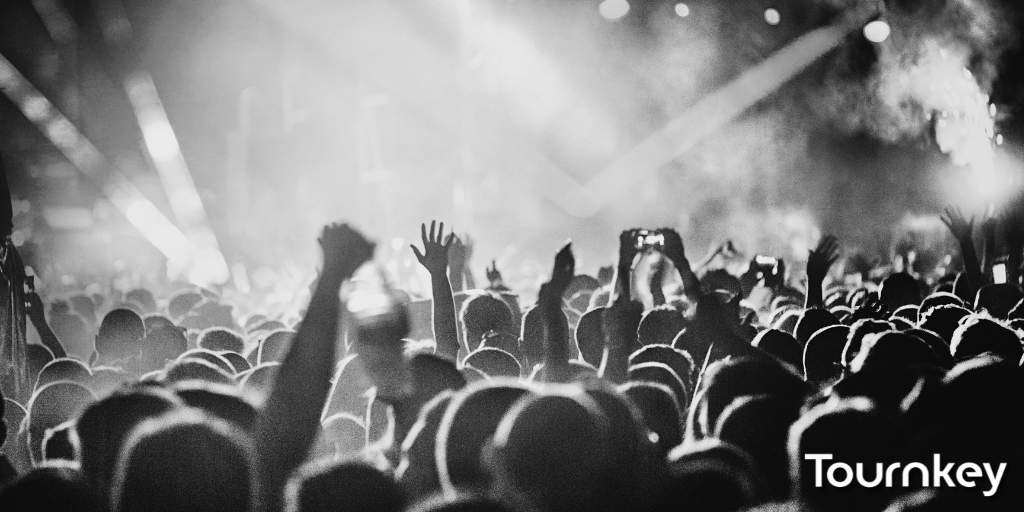Music festivals are taking the world by storm, with new events emerging almost weekly. This phenomenon reflects a cultural renaissance fuelled by social changes, economic opportunities, and technological innovation. What’s behind this surge, and why is everyone jumping on the music festival bandwagon? Let’s dive into the factors propelling this explosive trend.
The Post-Pandemic Rebound
The pandemic brought live entertainment to a screeching halt, leaving fans and artists yearning for the magic of shared musical experiences. Now, with restrictions lifted, the hunger for communal celebrations is palpable. Festivals are a cathartic escape, offering an antidote to years of isolation.
Artists are equally motivated to return to the stage, as live performances account for a significant portion of their earnings. Festivals provide a platform for reconnecting with audiences on a grand scale. This pent-up demand has fuelled the creation of new festivals to meet the resurgent appetite for live music.
Artists as Entrepreneurs
More than ever, artists are stepping into entrepreneurial roles, crafting festivals that reflect their unique vision and brand. Take J. Cole’s Dreamville Festival, for instance, a celebration of talent and culture under his curatorial guidance. Similarly, Karol G’s Mañana Será Bonito festival allows her to offer fans an immersive experience that goes beyond music.
These artist-led festivals represent a shift in the industry: musicians aren’t just performers; they’re business leaders building deeper connections with their audiences. By controlling every detail, from lineups to branding, artists can amplify their message while cultivating fan loyalty.
The Social Media Effect
Social media platforms like TikTok, Instagram, and Twitter have become powerful marketing tools for festivals. Announcements, viral challenges, and attendee-generated content create buzz, often months in advance.
These platforms also thrive on FOMO (fear of missing out), which plays a significant role in enticing audiences. A well-timed post or a viral TikTok dance trend can elevate a festival's profile almost overnight. As a result, festivals aren’t just live events; they’re content goldmines, sparking millions of online interactions.
Economic Incentives
Festivals don’t just benefit attendees—they’re economic juggernauts. Cities hosting festivals often see a surge in tourism, with local hotels, restaurants, and shops enjoying a boost. These events also create jobs, from stage crews to food vendors.
Sponsors and brands recognize the lucrative opportunities festivals present, pouring resources into these events to reach engaged audiences. For example, Michigan’s Electric Forest festival generates significant revenue while fostering community partnerships, underscoring how festivals can be a win-win for both organizers and local economies.
Niche Festivals: A Growing Trend
The days of one-size-fits-all festivals are over. Today’s festival landscape is richly diverse, catering to specific tastes and communities. Whether it’s the EDM-centric Lost Lands or Afro Nation’s celebration of African music and culture, niche festivals are thriving.
These specialized events allow organizers to connect deeply with target audiences, fostering loyalty and creating unique cultural experiences. As audiences seek more personalized interactions, niche festivals provide a compelling alternative to larger, more generic events.
Advances in Event Technology
Technology is revolutionizing the festival experience. From user-friendly ticketing platforms to RFID wristbands for cashless payments, innovation streamlines both organization and attendee convenience. Features like mobile apps for real-time updates and augmented reality stages enhance the overall experience.
Moreover, live streaming and virtual reality extend festivals’ reach, enabling fans around the globe to participate in real time. These advancements not only enrich the festival atmosphere but also make events more inclusive.
Why Is Everyone Starting a Music Festival?
Music festivals symbolize more than just entertainment; they reflect a cultural yearning for connection, expression, and creativity. The current boom is the result of a perfect storm: a post-pandemic craving for communal experiences, artists seeking to expand their brands, and the rise of niche and socially-powered marketing.
While the festival trend faces challenges like market oversaturation and environmental impact, its evolution promises exciting possibilities. As long as innovation and audience focus remain central, music festivals are here to stay, creating memories and cultural milestones along the way.
The Tournkey Event Ecosystem is a powerful series of tools designed to elevate your event’s profile while improving your event’s productivity and participant experience.


